The building sector relies on propane for its efficiency and portability. Propane has distinct safety issues despite its energy output and ease of usage. In dynamic and variable construction situations, strict safety standards are needed to regulate this extremely combustible gas. Workers must be trained to handle propane safely to ensure personal safety and regulatory compliance. This training reduces accidents and promotes worker safety, improving site security and efficiency.
Comprehending Propane and Its Applications
Propane is a by-product of raw gas processing and crude oil refining. It is used in various forms across industries, notably in construction for heaters and torches. Due to its explosive nature, understanding the chemical properties of propane and how to handle it safely is vital for all workers.
The Vital Role of Propane Safety Training
Propane safety training is important in the construction industry for several reasons:
- Improving Workplace Security: Appropriate training minimizes the possibility of accidents, which can lead to serious harm or fatalities.
- Regulatory Compliance: It ensures that businesses and employees follow national and local safety rules, therefore preventing legal problems and injuries.
- Operating Efficiency: Knowledgeable employees can operate propane tools more usefully, increasing productivity and decreasing waste.
Key Components of Effective Propane Safety Training
- Understanding Propane: Knowledge about its chemical properties, uses, and the dangers associated with improper handling.
- Secure Handling Practices: Detailed protocols for transporting, storing, and using propane and propane equipment on construction sites.
- Emergency Preparedness: Training in emergency reaction to propane leaks or fires, including practical drills on how to work swiftly and successfully.
Practical demonstrations and certifications
Hands-on demonstrations are an essential part of the training, permitting workers to experience real-world scenarios in a controlled atmosphere. A certification often acknowledges the completion of the training, validating the person’s readiness to handle propane safely.
Propane’s environmental and economic impact
Using propane is not only effective but also environmentally friendly compared to other fossil fuels, emitting fewer pollutants. Economically, it reduces energy costs due to its efficiency.
Propane Equipment Maintenance
Routine care of propane supplies is necessary for safe operation. This includes routine checks and servicing of propane tanks, hoses, and connectors to ensure they are free from defects and leaks. Skilled personnel who can identify potential risks and promptly implement corrective measures should perform maintenance.
Role of Personal Protective Equipment
Using suitable personal protective equipment is vital when handling propane. PPE such as gloves, goggles, and fire-resistant clothes protects workers from burns, inhalation of dangerous gases, and other injury risks. Training should emphasize the correct use and volume of PPE in stopping misfortunes.
Protocols for Installing and Setting Up
Proper installation and setup of propane equipment are fundamental to ensuring safety. We need to train workers on the correct procedures for setting up propane tanks and connecting equipment. This training should cover the importance of checking for leaks and ensuring that all connections are secure before use.
Propane Transportation Safety
Transporting propane demands loyalty to specific safety regulations. Employees should acquire training on the safe transportation of propane cylinders and tanks, which includes proper securing to prevent accidents. This also involves understanding the legal requirements and safety standards for transporting hazardous materials.
Providing safety while using propane in construction is more than just a compliance need; it is a necessity to protect lives and property. Safety First Training offers comprehensive courses tailored to teach and reinforce best practices in propane handling and safety. With the right training, workers can handle propane efficiently and respond effectively to any emergencies, minimizing risks and promoting a safer work environment. This proactive approach to safety can lead to a more productive and secure construction site.

